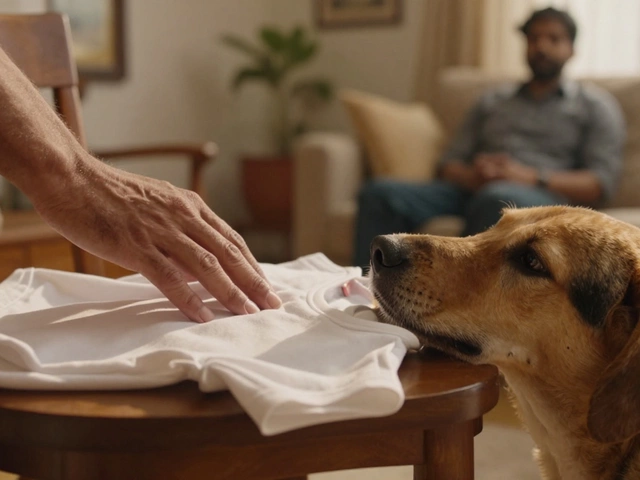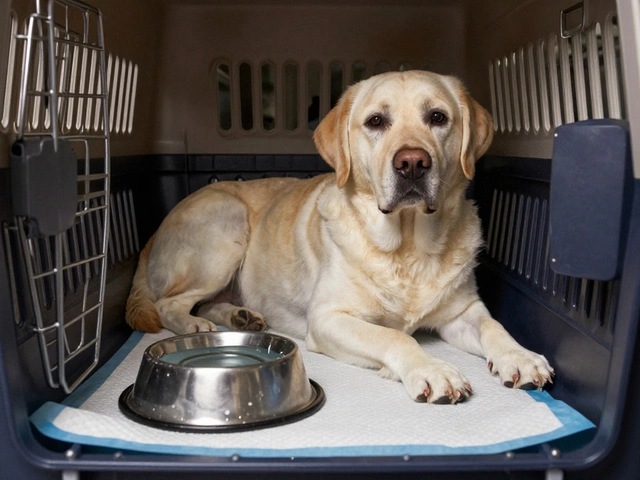Dog Vitamins: What Every Dog Owner Should Know
Feeling unsure about whether your dog needs a vitamin boost? You’re not alone. Most owners wonder if a supplement will help their pup feel better or just waste money. The good news is that the right vitamins can fill gaps in a diet, support joint health, and keep skin and coat shiny. The bad news is that too many or the wrong ones can cause problems. Let’s cut through the noise and give you a clear roadmap.
Common Vitamins Dogs Actually Benefit From
Multivitamins give a balanced mix of A, D, E, and B‑complex vitamins. They’re useful for seniors, dogs on homemade diets, or pups with picky eating habits. Omega‑3 fatty acids (often from fish oil) help with inflammation, joint comfort, and a glossy coat. Glucosamine & chondroitin are popular for large breeds or older dogs that show early signs of arthritis. Probiotics aren’t a vitamin, but they work well with supplements to keep digestion smooth. Lastly, Vitamin D is essential for bone health, but only give it if a vet says your dog is low.
How to Choose the Right Supplement
Start with your dog’s diet. If you’re feeding a high‑quality commercial kibble, most essential nutrients are already there. In that case, a simple joint supplement or a small omega‑3 boost may be enough. If you make food at home, you’ll likely need a broader multivitamin to cover vitamins A, B, and minerals like zinc.
Check the label for the AAFCO statement. It means the product meets minimum nutrient standards for dogs. Look for a short ingredient list—no unnecessary fillers or artificial colors. Dosage info should be based on weight; don’t guess.
Ask your vet before you start any new product. They can run blood work to see if your dog is truly deficient. A vet’s recommendation also helps you avoid harmful overdoses, especially with fat‑soluble vitamins A, D, E, and K.
When you buy, pick a reputable brand that does third‑party testing. That way you know the label matches what’s inside. Cheap store‑brand pills often skip this step and can be unreliable.
Give the supplement with food unless the instructions say otherwise. Mixing it into a wet meal or a treat hides the taste and makes it easier for the dog to swallow.
Watch for side effects. Loose stool, vomiting, or unusual lethargy can mean the dose is too high. If you see any of these signs, stop the supplement and call your vet.
Remember, vitamins are a supplement, not a replacement for a balanced diet. They work best when the base food is already nutritious.
By following these simple steps—check the diet, read the label, ask the vet, and monitor your dog—you’ll give your pup the nutrients it truly needs without risk. Your dog will thank you with a wagging tail and a healthier outlook.

Should I Give My Dog Vitamins Every Day? Dog Health Facts You Need to Know
Ever wondered if your dog actually needs a daily vitamin? This article unpacks what science and vets really say about giving dogs vitamins every day. We’ll talk about which dogs might need extra help, why some pups actually shouldn’t get them, and how to spot supplement scams. Real stories, smart tips, and solid facts make this a guide every dog owner should check before buying that next bottle.
read more
Choosing the Right Dog Health Supplements for Your Pet
Selecting the best health supplements for your dog doesn't have to be overwhelming. This article provides insights on understanding your dog's nutritional needs and offers practical tips for choosing high-quality supplements that will benefit your pet. Learn about different types of supplements, key ingredients, and essential factors to consider before making a purchase. Remember, a well-informed choice means a healthier and happier pet.
read more



